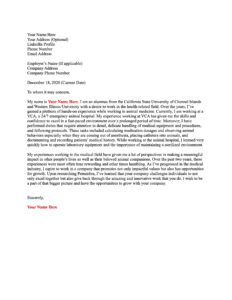10 Questions to Ask a College Counselor Before Hiring One
A college counselor can provide key insights, support, and structure into the college application process.
A college counselor can provide key insights, support, and structure into the college application process. Applying to college can feel stressful and overwhelming. This is why it’s important to know which questions to ask a college advisor, so they can properly guide you through the entire admissions process.
Some students start preparing for college as soon as their freshman year of high school. It’s never too early to start thinking about what, or where, you might want to study after high school. By consulting a college advisor, your high school guidance counselor, and/or a trusted teacher or coach, you can start actively reflecting on your high school goals, standardized tests, the PSAT, AP courses, and extracurricular activities. Hiring a professional can help you with college counseling and guidance as early as your freshman year, so you can feel prepared during college application season your senior year.
There are so many factors to consider when preparing for college applications, from class schedules, electives, and extracurriculars to GPAs, SAT test scores, and SAT subject tests. Attending college is a huge personal, financial, and emotional commitment, so properly researching schools, programs, financial aid packages, and more is vital. This is why many students decide to hire a college admissions counselor. Individual attention and support can not only help you better focus your efforts, but it can also help you stay organized and meet deadlines.
Hiring a college counselor, however, can feel daunting. How do you find the right one? In this article, we’ll discuss some of the best questions to ask a college admissions counselor before you decide who you should hire for this crucial role.
There are lots of questions to ask your guidance counselor about college, but you might benefit from having additional resources. Here are some top questions to ask a high school college advisor as you decide who is best suited for the role.
Where did they attend college? What did they study? What jobs have they had in the past? What are some of their key job skills? What qualifies them to counselor college applicants?
There are lots of college counselors to choose from, so it’s important to be discerning. One way to sort through potential college counseling services is to have a thorough understanding of the counselor’s professional and educational background. Are you impressed by their background? Are they well-connected with additional college planning resources? For instance, if you have your heart set on attending an ivy league school such as Duke, Harvard, or Cornell, do they know admissions officers, professors, or alumni? Do they have advice regarding early action and early decision?

There are countless answers to these questions. Make sure, however, that they give you detailed answers and are not withholding. Key details to look for including various certifications, professional association membership, and continuing education (conferences, training, etc.).
You might hire an independent consultant or a college admissions counselor employed through a larger company. In either case, it’s important to find out about their reputation. For agencies, look at online reviews. How many reviews do they have? Are they generally positive? For independent consultants or start-ups, ask for at least two references you can contact directly.
It’s important to know as much as you can about a college admissions counselor and/or college counseling agency before you hire an advisor. You can learn a lot by contacting prior clients and reading testimonials and online reviews. It’s important to know that the counselor and/or agency is legitimate, ethical, and is not overcharging for their services.
An occasional negative review doesn’t have to be a deal-breaker. After all, no one can please everyone. It’s important to look for potential trends, however. If there are several reviews with similar complaints, consider looking elsewhere for your college planning needs.
How many student success stories have they been a part of? What are their overall statistics? Which schools have they helped students gain admissions into? Of the students they’ve worked with, what were the average test scores, class rankings, and a number of AP classes taken? What are some examples of typical extracurricular activities or internships of past college applicants?
It’s important to know if your prospective college counselor has been successful in the past. College applications can be competitive, especially for highly-selective four-year schools, but when you pay for a professional service, you expect professional results. Do they have impressive statistics?
Established counseling companies will likely have lots of data to draw from to form overall statistics. Expect precise measurements, percentages, charts, graphs, etc.. An independent consultant will likely have less overall data, but this question is still important to ask. Monitor how they respond to this question. Are they vague or otherwise hesitant to give you firm numbers? Or do they seem open and accommodating?
When hiring a college admissions counselor, ask lots of questions about the specific services they provide. For example, do they include one-on-one advising sessions? Will they help you conduct your college search and come up with a balanced list of reach, fit, and safety schools? Will they coach you on how to write your college essay and who to ask for your letters of recommendation? Will they provide you with lists of college fairs and other similar resources?
It’s important to know what you’re paying for. Establish your expectations early. Do you anticipate needing additional attention on anything specific? If so, will they accommodate your needs?
Make sure you receive a comprehensive list of services provided. Again, the earlier you establish expectations the better, for both of you.

If you have a pressing question or are anxious about the college application process and benefit from regular communication, how promptly can they get back to you? What is their preferred method of communication and how quickly can you expect an answer?
This is an important question to ask because the answer can easily dictate whether or not this is the right college advisor for you. How much attention do you want and need during your senior year and college application season? Is this counselor able to accommodate your needs?
Some college counselors are incredibly hands-on, whereas other college counselors may play a more limited role. Consider their answer in relation to other information. How does this information fit in with your overall priorities?
How do their rates compare to other counselors? Do their prices seem fair? Do their prices reflect their overall level of engagement and services?
College is a huge financial investment. Realistically, can you and your family afford this counselor’s services? Are you in a place, financially, where you can balance quality of services, credibility, etc., and overall price? It’s also important to make sure that this counselor or company is fair and ethical. Unfortunately, some college counselors financially take advantage of nervous students and parents. Keep this in mind as you compare rates.
Answers may vary greatly. Do they charge a flat or hourly rate? Do they charge for individual services? Do they have any additional fees you should know of?
It’s important to know how your college counselor conducts their services. How is their program structured? Do they provide services according to holistic admissions standards? Will they help you make achievable high school goals, select challenging and diverse high school electives, reflect thoughtfully on possible essay topics, and speak with confidence during college interviews?

Everyone has a different learning style. It’s important that your individual preferences align with your college counselor’s teaching methods. There are lots of counselors to choose from, so find one you feel comfortable working with.
There are limitless answers to this question. Make sure you feel satisfied with their answer. Do you anticipate needing more than what they offer?
As internet platforms and services continue to offer more and more, college prep services are being offered online with more frequency. Online counseling can be convenient for a lot of different reasons, especially if you have limited availability of transportation. Still, some people feel more comfortable meeting in person.
Clear expectations are important. People also tend to have strong preferences between online and in-person communication. Make sure the method your college counselor uses resonates with you.
If your college counselor primarily conducts business online, do they use a specific platform? Does this platform have any special features such as a forum or online tutorials? Perhaps your counselor meets with their clients online and in person. If this is the case, make sure you get a thorough understanding of how often you meet in-person versus online.
Everyone has different interests and areas of expertise. Do your interests, goals, and preferred career options align with those of your college counselors? If you want to study creative writing but your college counselor studied physics, perhaps it isn’t the best match.
You want to make sure your college counselor can answer specific questions about the major you are interested in and recommend schools that are a strong fit based on your interests. If you are interested in pursuing PreMed, make sure your advisor is well-versed in the college admissions process for your specific program. It’s especially important to share common interests with your college advisor if you plan on entering a competitive, specialized program.
You do not necessarily need to share the same major as your college advisor, but it’s helpful if there is some overlap. For instance, if you’re interested in studying theater, a college counselor with a background in music, literature, creative writing, or studio arts might be a good fit. Similarly, if you’re interested in studying environmental science, a college counselor with a background in ecology, biology, or even political science might make a good match.
College counselors can be fairly specialized and not all college counselors will offer or be qualified to offer financial aid assistance. Financial aid documents and scholarship applications can be a huge factor for many families. Oftentimes these documents can feel confusing or overwhelming.
If you know financial aid and scholarship applications are a priority, it may be worth finding a college counselor who can help you and your family navigate the various financial forms such as the FAFSA.
If you know you will be applying for financial aid, do some research ahead of time and write down a detailed list of questions you have. What do you find confusing? Then share some of these questions with your college counselor and see how good they are at explaining these concepts to you.
At Prepory we provide exceptional college counseling services, including one-on-one college advising sessions, essay and resume feedback, mock college interviews, online webinars, specialized workshops, forums for small group discussions, and more. We also offer periodic Parent Check-Ins where parents can ask Prepory HQ members questions about their child’s individual progress and performance. Our counselors work with high schoolers in 9th through 12th grade. Reach out to learn more.
In order to have a successful working relationship with your college counselor, make sure you reflect on their responses to these ten questions. This comprehensive list will help you understand what you want and expect from a college advisor, as well as help you narrow down your choices. Choose a counselor who you feel comfortable talking to. A college counselor is there to teach, guide, reassure, and encourage you, so make sure it’s the right match!
A college counselor can provide key insights, support, and structure into the college application process.
The best SAT tips are addressed in this article. This guide will help you get ready for the big day with hacks, advice, and tips on how to pass each section of the SAT.
Learn step by step what a cover letter is and the best way to write one. We’re going to guide you through the best ways to organize your cover letter and ‘wow’ your future employer.
It’s common for people to be unsure of what to put in their cover letter. A lot of people might even be unsure of what a cover letter’s purpose is. A cover letter should seamlessly coincide with your resume. This guide will go in-depth on what a cover letter is and how to efficiently write one. You’re one step away from catching a future employer’s eye and landing an interview.
Whether your journey has just begun, or you are looking for a new adventure, we’re here to help you conduct the best cover letter possible within your job search. One of the main purposes of writing a cover letter is to show employers what you are capable of. It’s your chance to make a good first impression and show them what skills you have, what you are passionate about, and all of the experience you have.
Typically a cover letter is a one-page paper that you submit in addition to your resume. This is a way to express to the employer that you are interested in the job position that is open. The ideal layout of a cover letter is to introduce yourself, provide them with an overview of your work experience, professional skills, what you are passionate about, and why you are best suited for the open position.
Don’t confuse your resume with the cover letter. Your resume goes into detail about your achievements and work experience, while your cover letter gives a brief overview of what they could expect of an employee like you.
We’re going to guide you through the best things to address when you are writing your cover letter. The structure and tone matter, so keep that in mind as well when you are explaining all of your professional skills.
Along with your information, you should include the employer’s basic information as well. You should provide the following information in order. First and last name, email address (a professional one), phone number, mailing address, LinkedIn profile link, and portfolio.
After your information, it is ideal to include your potential employer’s information. List the following information in order. First and last name (of the person you are addressing), company address, company phone number, and hiring manager’s email address.

When you begin your cover letter it is best to address the person you are sending it to by name. If you don’t have access to their name directly, a simple “To whom it may concern’ will work as well. There is more than one way to find out what the hiring manager’s name is. You could try to search the company on linked in, explore their website directly, and if you are determined to address the manager directly, then you could contact the company.
Start your cover letter with an informative, direct introduction by including the following details in the first one or two sentences. Your job position or the one that you are applying for, the name of the company, how you found out about the open position (this could be from Linkedin, Indeed, or other hiring platforms), and why you are applying for the position. This is your time to shine, so mention your excitement about the position and why you think you are the perfect one for the job. Lastly, include past experience that might be applicable to the job that you are applying for. This could hold weight with the hiring manager, which means they would be more inclined to pick you for the position.
The next set of paragraphs should be convincing the hiring manager why you are perfect for the job. This is where you can talk about all of your past achievements and applicable work experience. For inspiration, here are a few things you can highlight that may be of value to your employer.
Professional achievements: Did you exceed targets for production, sales, revenue, profit, customer satisfaction, or any other business objectives?
Professional praise: Have you received compliments from management or colleagues for your work?
Professional awards: Have you received awards for your work, like “Employee of the Month”?

Begin to close out your cover letter by restating your interest in the job and explaining how your experience fits into the needs of the company.
For example, if you’re applying to work at a company that’s seeking to break into a new market that you have experience in, you should highlight this experience in your writing.
If you’re not sure what the goals or needs of the company are, find out by doing some general research online. Take note of what products or services they offer, what their work culture is like, or if they have any future goals.
When writing your cover letter closing, be polite, confident, and continue to market yourself as the best candidate for the job. Here’s how to write a convincing final paragraph for your cover letter in three steps:
The last thing that you’ll want to do when closing out your cover letter is to close it out properly. There are a few different sign-offs that you can include at the end of your cover letter. Here they are:
Here is an example of a cover letter to go off of in case you are in need of some inspiration. There are a lot of different ways to go about writing your cover letter. Keep a strong and confident tone so the employer knows that you are ready to take on the position.

Once you have your completed cover letter you are ready to start applying for jobs! You are more likely to get a job if your resume is paired with a cover letter. Just remember to provide as much quality information as possible while also keeping the letter short and sweet.